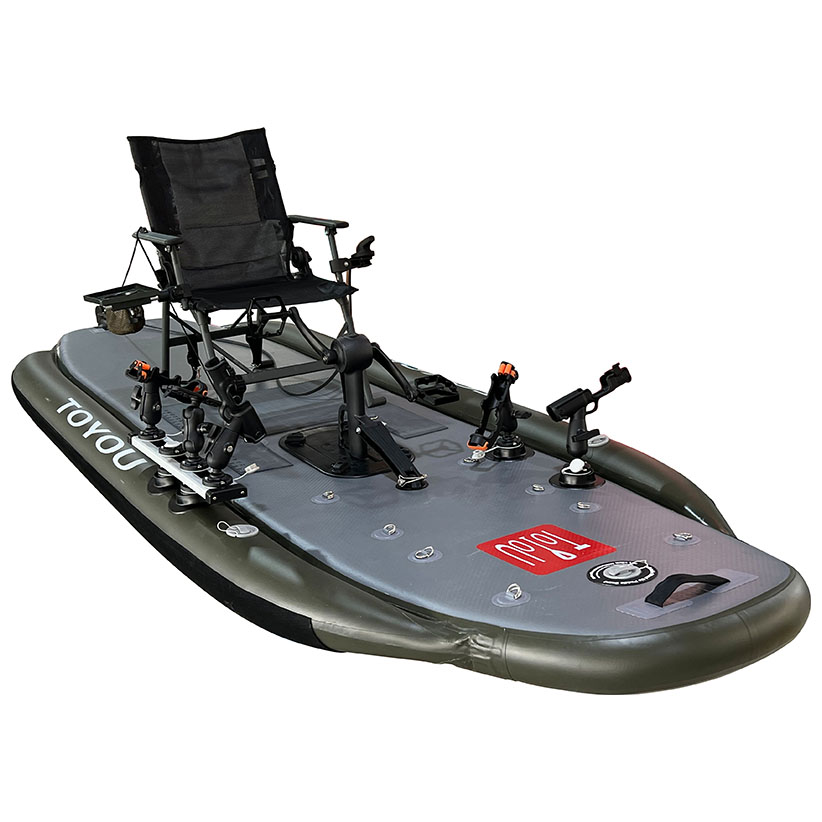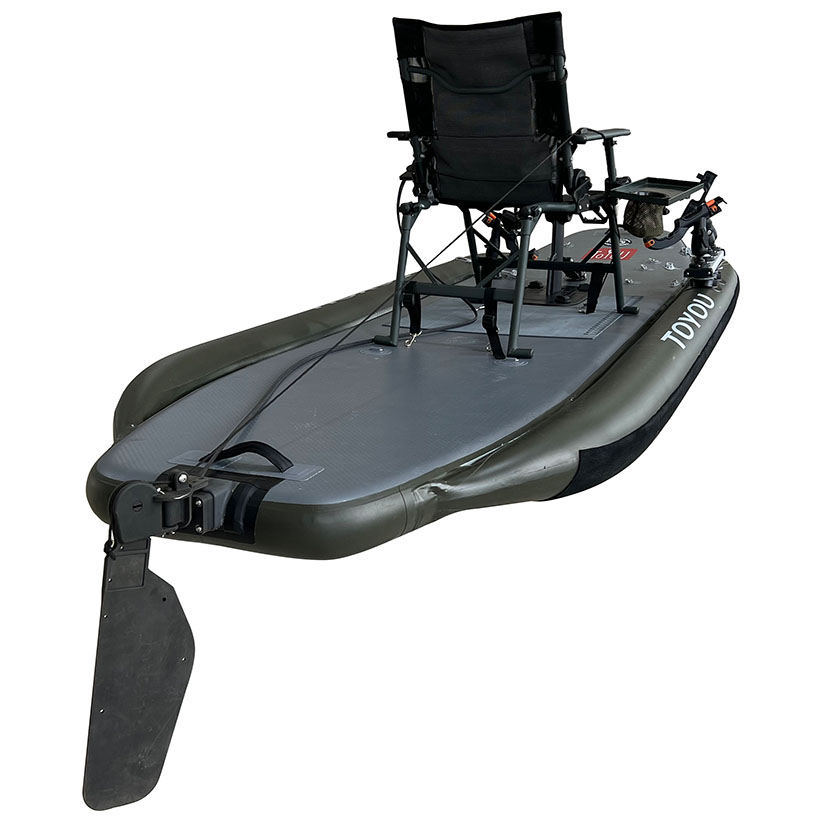Using an inflatable fishing kayak can be a great way to access fishing spots, but there are some important considerations to ensure safety, performance, and longevity of your equipment. Here are key points to notice during the use of an inflatable fishing kayak:
Safety Considerations
- Wear a PFD:
- Always wear a Personal Flotation Device (PFD) while on the water. This is crucial for safety in case of an accidental capsize or fall.
- Check Weather Conditions:
- Before heading out, check the weather forecast to avoid severe conditions like high winds, storms, or extreme temperatures that can make kayaking dangerous.
- Know Your Limits:
- Be aware of your skill level and avoid challenging waters if you are a beginner. Start in calm, shallow waters and gradually move to more difficult conditions as you gain experience.
- File a Float Plan:
- Let someone know your plan, including where you are going and when you expect to return.
Maintenance and Care
- Proper Inflation:
- Ensure your kayak is inflated to the recommended PSI. Under-inflation can lead to poor performance and over-inflation can damage the kayak.
- Inspect for Damage:
- Before each use, check the kayak for any punctures, tears, or worn areas. Repair any damages before taking it out on the water.
- Clean After Use:
- Rinse your kayak with fresh water after each use, especially if you have been in saltwater, to remove any salt, dirt, or debris. This prevents material degradation and extends the life of the kayak.
- Proper Storage:
- Store the kayak in a cool, dry place away from direct sunlight. UV rays can damage the material over time. Make sure it is completely dry before storing to prevent mold and mildew.
Equipment and Setup
- Fishing Gear:
- Securely store fishing gear and ensure it is easily accessible. Use rod holders, tackle boxes, and bungee cords to keep everything organized.
- Anchor System:
- Consider using an anchor system to stay in one place while fishing. This is especially useful in areas with currents or wind.
- Paddle Leash:
- Use a paddle leash to ensure you don’t lose your paddle if you accidentally drop it.
Environmental Considerations
- Leave No Trace:
- Follow the principles of Leave No Trace by not leaving any trash or fishing line in the water. Respect the natural environment and wildlife.
- Respect Local Regulations:
- Be aware of and comply with local fishing regulations, including licenses, size limits, and seasonal restrictions.
Additional Tips
- Use a Kayak Cart:
- A kayak cart can make transporting your inflatable kayak to and from the water much easier, especially if you have a lot of gear.
- Emergency Kit:
- Carry an emergency kit that includes a first aid kit, repair kit for the kayak, a whistle, and a mobile phone or radio for communication.
By following these guidelines, you can ensure a safer and more enjoyable experience while using your inflatable fishing kayak.


